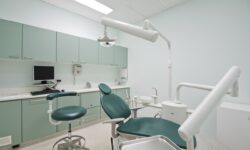Eye Doctor in Green Acres Mall ⏬⏬
Are you in need of professional eye care services in the Green Acres Mall area? Look no further! Our dedicated team of experienced eye doctors is here to provide you with top-quality vision care. Whether you require a comprehensive eye examination, contact lens fitting, or treatment for an eye condition, we have the expertise and state-of-the-art equipment to meet your needs. At our practice, your eye health and visual well-being are our top priorities. Trust us to deliver exceptional care and personalized attention to ensure optimal eye health for you and your family. Make an appointment today and experience the difference our skilled eye doctors can make in your vision care journey.
Eye Doctor
An eye doctor, also known as an ophthalmologist or optometrist, is a medical professional specializing in the diagnosis and treatment of various eye conditions and diseases. They play a crucial role in maintaining and improving the overall health of our eyes.
Eye doctors undergo extensive education and training to acquire the knowledge and skills necessary for their profession. They typically complete a bachelor’s degree followed by four years of optometry school or medical school, depending on their chosen path. After completing their formal education, they may also pursue further specialization through residency programs.
Eye doctors provide a wide range of services, including comprehensive eye examinations, prescribing eyeglasses or contact lenses, diagnosing and treating eye diseases such as glaucoma and cataracts, performing surgical procedures (in the case of ophthalmologists), and managing conditions like dry eyes or eye infections.
During an eye examination, an eye doctor will assess various aspects of vision, such as visual acuity, depth perception, and color vision. They may use specialized equipment to examine the structures of the eye, including the cornea, retina, and optic nerve. This helps them detect potential abnormalities or signs of disease.
If you experience any issues with your vision or have concerns about your eye health, it is important to schedule an appointment with an eye doctor. Regular eye examinations are essential for early detection and timely treatment of eye conditions, even if you don’t currently have any noticeable problems.
Remember, taking care of your eyes is crucial for maintaining good vision and overall well-being. Consulting with an eye doctor can help ensure that your eyes receive the proper care and attention they deserve.
Green Acres Mall: A Shopper’s Paradise
Welcome to Green Acres Mall, a premier shopping destination located in Valley Stream, New York. With its expansive selection of stores, diverse dining options, and vibrant atmosphere, Green Acres Mall offers an unparalleled shopping experience for visitors of all ages.
A Retail Haven
Green Acres Mall is home to over 200 retail establishments, including well-known department stores, fashion boutiques, electronics outlets, and specialty shops. Whatever you’re looking for, whether it’s the latest fashion trends or cutting-edge technology, you’ll find it within the mall’s extensive array of stores.
Indulge in Culinary Delights
When you need a break from shopping, Green Acres Mall offers a wide range of dining options to satisfy your cravings. From casual eateries to upscale restaurants, the mall caters to every taste bud. Grab a quick bite at the food court or enjoy a leisurely meal at one of the sit-down restaurants – the choice is yours.
Entertainment and More
Green Acres Mall goes beyond just shopping and dining. The mall features entertainment options such as a movie theater, arcades, and family-friendly activities, ensuring a fun-filled experience for everyone. You can catch the latest blockbuster films, challenge friends to a friendly game, or participate in exciting events organized within the mall.
Convenience and Amenities
With ample parking spaces and convenient transportation options, Green Acres Mall ensures easy accessibility for shoppers. Additionally, the mall provides amenities like restrooms, seating areas, and Wi-Fi, ensuring a comfortable and enjoyable visit from start to finish.
A Community Hub
Green Acres Mall plays an integral role in the local community, hosting various events and initiatives throughout the year. From charity drives to seasonal celebrations, the mall brings people together and fosters a sense of belonging.
Whether you’re a resident of Valley Stream or a visitor from afar, Green Acres Mall offers an exceptional shopping experience that combines convenience, variety, and entertainment. Plan your visit today and immerse yourself in a world of retail therapy at Green Acres Mall!
Optometrist: Vision Care Professionals
An optometrist is a highly trained healthcare professional who specializes in eye care and vision correction. They play a crucial role in helping individuals maintain good eye health and achieve optimal vision.
Optometrists are skilled in diagnosing and treating various eye conditions, such as refractive errors (e.g., nearsightedness, farsightedness, astigmatism), presbyopia, and eye diseases (e.g., glaucoma, cataracts). They perform comprehensive eye examinations to assess visual acuity, determine the need for corrective lenses, and evaluate overall eye health. Utilizing specialized tools and techniques, they can detect and manage ocular abnormalities at an early stage, promoting timely intervention and preventing potential vision loss.
One of the primary responsibilities of an optometrist is prescribing and fitting corrective lenses, including eyeglasses and contact lenses. They consider individual needs and lifestyle factors while recommending suitable options that improve visual clarity and comfort. Optometrists also provide guidance on proper eyewear maintenance to ensure durability and extend their lifespan.
Beyond vision correction, optometrists offer specialized services related to specific age groups or conditions. Pediatric optometry focuses on children’s eye health, addressing issues like amblyopia (lazy eye) and strabismus (crossed or misaligned eyes). Geriatric optometry addresses age-related eye problems like macular degeneration and provides solutions for maintaining visual function in older adults.
An optometrist may collaborate with other healthcare professionals, such as ophthalmologists and opticians, to deliver comprehensive eye care. In cases where advanced treatment or surgery is required, they refer patients to ophthalmologists, who are medical doctors specializing in eye surgery and complex eye conditions.
Regular visits to an optometrist are essential for everyone, regardless of age or existing vision problems. They not only address immediate concerns but also contribute to proactive eye health management. By promoting routine eye examinations and emphasizing preventive measures, optometrists play a pivotal role in preserving and enhancing patients’ visual well-being.
Ophthalmologist
An ophthalmologist is a medical doctor who specializes in the diagnosis, treatment, and management of diseases and disorders related to the eyes. They are highly trained professionals who provide comprehensive eye care services, including performing eye exams, prescribing corrective lenses, diagnosing and treating eye conditions, and performing eye surgeries.
As experts in the field of ophthalmology, these professionals are equipped with the knowledge and skills to address various eye problems such as cataracts, glaucoma, macular degeneration, diabetic retinopathy, and other vision-related issues. They use advanced medical technologies and techniques to evaluate eye health, determine the appropriate course of treatment, and monitor the progress of patients’ eye conditions.
When visiting an ophthalmologist, patients can expect a thorough examination that may involve testing visual acuity, measuring intraocular pressure, assessing eye movements, examining the structures of the eye, and evaluating overall ocular health. Based on the results, the ophthalmologist will develop a personalized treatment plan which may include prescription eyewear, medications, or surgical interventions.
It is important to prioritize regular eye check-ups and consult an ophthalmologist if you experience any changes in your vision or have concerns about your eye health. Ophthalmologists play a crucial role in preserving and improving vision, allowing individuals to maintain optimal eye health and quality of life.
Vision Care: Ensuring Healthy Eyes and Clear Vision
Vision care plays a crucial role in maintaining optimal eye health and ensuring clear vision. By understanding the importance of regular eye examinations, adopting healthy habits, and seeking appropriate treatments, individuals can effectively take care of their vision.
Regular eye examinations are essential for detecting any underlying eye conditions or vision problems. These comprehensive assessments, conducted by optometrists or ophthalmologists, evaluate various aspects of visual health, such as visual acuity, eye coordination, and overall eye health.
Adopting healthy habits can greatly contribute to preserving good vision. Protecting the eyes from harmful ultraviolet (UV) rays by wearing sunglasses or hats with brims is crucial. Additionally, maintaining a balanced diet rich in nutrients like vitamins A, C, and E, as well as omega-3 fatty acids, can support eye health. It is also important to avoid smoking, as it can increase the risk of developing eye diseases like cataracts and macular degeneration.
When vision problems arise, seeking appropriate treatments is vital. Corrective lenses, such as glasses or contact lenses, are commonly prescribed to improve refractive errors like nearsightedness, farsightedness, and astigmatism. In some cases, refractive surgery, such as LASIK, may be recommended to permanently correct vision.
Furthermore, individuals should be aware of potential signs of eye problems and seek prompt medical attention when necessary. Symptoms like blurred vision, eye pain, redness, sensitivity to light, or sudden changes in vision should not be ignored, as they could indicate underlying issues that require professional evaluation and treatment.
Eye Care
Eye care is crucial for maintaining healthy vision and preventing eye-related problems. Proper eye care practices involve a combination of regular eye exams, adopting good habits, and protecting the eyes from potential hazards.
One essential aspect of eye care is scheduling regular eye examinations with an optometrist or ophthalmologist. These professionals can detect early signs of eye conditions, such as cataracts, glaucoma, or macular degeneration, allowing for timely treatment and management.
In addition to regular check-ups, there are several simple yet effective habits that promote good eye health. One such habit is practicing proper eye hygiene, including washing your hands before touching your eyes and avoiding rubbing them excessively. Additionally, maintaining a balanced diet rich in nutrients like vitamins A, C, and E, as well as omega-3 fatty acids, can support eye health.
Protecting the eyes from potential hazards is another critical aspect of eye care. This involves wearing appropriate eye protection during activities that may pose a risk, such as sports, construction work, or exposure to harmful chemicals or bright lights. Additionally, using sunglasses with UV protection when outdoors helps shield the eyes from harmful ultraviolet rays.
It is important to note that excessive screen time, whether from computers, smartphones, or other digital devices, can strain the eyes. To minimize strain, it is advisable to follow the 20-20-20 rule: every 20 minutes, take a 20-second break and focus on an object at least 20 feet away.
Eye Exam
An eye exam is a comprehensive evaluation of the visual and ocular health conducted by optometrists or ophthalmologists. It involves a series of tests and procedures to assess various aspects of vision and detect any potential eye conditions or diseases. Regular eye exams are crucial for maintaining good eye health and detecting early signs of vision problems.
The eye exam typically begins with a discussion of the patient’s medical history and any current eye-related concerns. The healthcare professional then performs a range of tests, including:
- Visual acuity test: Measures how well a person sees at various distances using an eye chart.
- Refraction test: Determines the appropriate prescription for glasses or contact lenses.
- Color vision test: Assesses the ability to distinguish different colors accurately.
- Slit-lamp examination: Utilizes a specialized microscope to examine the front structures of the eye.
- Retinal examination: Involves the use of dilating eye drops to evaluate the retina and optic nerve.
In addition to these tests, other assessments may be performed based on individual needs, such as measuring intraocular pressure to screen for glaucoma or evaluating the peripheral vision. The results of the eye exam help the eye care professional determine the overall eye health status, diagnose any issues, and recommend appropriate treatments or interventions.
It is recommended that individuals undergo regular eye exams, even if they do not experience any noticeable vision problems. Early detection of eye conditions allows for timely treatment, which can help prevent vision loss and maintain optimal eye health.
Contact Lenses
Contact lenses are corrective optical devices that are placed directly on the cornea of the eye to improve vision. They offer a convenient alternative to traditional eyeglasses, providing wearers with enhanced comfort and a wider field of view. Contact lenses are commonly used to correct refractive errors such as nearsightedness (myopia), farsightedness (hyperopia), astigmatism, and presbyopia.
There are two main types of contact lenses: soft and rigid gas permeable (RGP). Soft lenses are made from flexible plastics that allow oxygen to pass through, ensuring proper eye health. They conform to the shape of the eye and are generally comfortable to wear. Rigid gas permeable lenses are made from a harder material and provide crisper vision, especially for individuals with astigmatism.
When using contact lenses, it is crucial to maintain good hygiene and follow proper lens care instructions to prevent eye infections and other complications. This includes cleaning and disinfecting the lenses regularly, storing them in appropriate solutions, and replacing them as recommended by the eye care professional.
Contact lenses can be prescribed for various purposes, including vision correction, cosmetic enhancement (colored or tinted lenses), and therapeutic applications (such as bandage lenses for corneal injuries or specialized lenses for conditions like keratoconus).
It is essential for individuals interested in wearing contact lenses to undergo a comprehensive eye examination and obtain a valid prescription from an eye care practitioner. Regular follow-up visits are also essential to monitor eye health and ensure the continued suitability and effectiveness of the prescribed lenses.
Glasses: Enhancing Vision and Style
Glasses have long been recognized as essential tools for correcting vision impairments, while also serving as fashionable accessories. With their functional and aesthetic qualities, glasses play a significant role in enhancing both visual clarity and personal style.
One of the primary purposes of glasses is to correct refractive errors, such as nearsightedness (myopia), farsightedness (hyperopia), and astigmatism. These common vision conditions can cause blurred or distorted vision, making it difficult to focus on objects at various distances. By utilizing precisely prescribed lenses, glasses help to redirect light and bring images into clear focus on the retina, thus improving visual acuity.
Aside from their functional benefits, glasses have evolved into fashion statements over the years. Eyewear designers and manufacturers offer an extensive range of frame styles, materials, and colors to cater to diverse tastes and preferences. Whether one seeks a classic, timeless look or desires a bold, contemporary design, there are countless options available to suit individual fashion sensibilities.
The versatility of glasses extends beyond vision correction and fashion. Specialized glasses have been developed to address specific needs, such as protective eyewear for sports and occupational safety goggles. Additionally, sunglasses with UV protection help shield the eyes from harmful ultraviolet rays, reducing the risk of eye-related health issues, including cataracts and macular degeneration.
Advancements in technology have further enhanced the functionality of glasses. Some innovative models incorporate features like anti-reflective coatings, scratch-resistant materials, and blue-light filters to reduce eye strain caused by digital screens. Moreover, the integration of smart technologies into glasses has resulted in the emergence of “smart glasses,” offering augmented reality (AR) experiences and hands-free functionalities.
Eye Clinic
An eye clinic, also known as an ophthalmology clinic, is a specialized medical facility that focuses on the diagnosis, treatment, and management of various eye conditions and diseases. These clinics are staffed by ophthalmologists, who are medical doctors specializing in eye care.
At an eye clinic, patients can receive a wide range of services related to their eye health. This includes comprehensive eye examinations to assess vision and detect any abnormalities or conditions such as nearsightedness, farsightedness, or astigmatism. Eye clinics also provide consultations for specific eye issues, such as dry eyes, eye infections, or glaucoma.
In addition to diagnostic services, eye clinics offer treatments for various eye conditions. This may involve prescribing corrective lenses, such as glasses or contact lenses, to improve vision. They may also provide medications or perform surgical procedures to address more serious eye conditions, including cataracts, retinal disorders, or refractive errors.
An important aspect of an eye clinic is patient education. Ophthalmologists and other healthcare professionals at the clinic educate patients about maintaining good eye health, preventing eye injuries, and managing chronic eye conditions. They may offer guidance on proper eye care practices, such as regular eye hygiene, wearing protective eyewear, and following a healthy lifestyle to promote overall eye health.
Eye clinics often collaborate with optometrists, who specialize in vision testing, prescription of corrective lenses, and the detection of certain eye conditions. This partnership ensures comprehensive eye care for patients, with optometrists providing primary eye care and referring patients to ophthalmologists when necessary.
Overall, eye clinics play a crucial role in preserving and improving patients’ eye health. Through a combination of specialized medical expertise, advanced diagnostic tools, and state-of-the-art treatments, these clinics help individuals maintain optimal vision and address various eye-related concerns.



